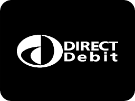
This is a morning program only. Childcare options are available.
Society Fees:
First Child Annual Fee: $3,235
($323.50 / month)
Additional Children Annual Fee: $2,980
($298 / month)

Society Fees:
First Child: $4,780
($478 /month)
Additional Children: $4,215
($421.50 / month)
*Credit card payment policy: 3% charge will be added to your monthly fee.

Pay online directly through your bank or complete our EFT forms for automatic payments.

*Payable to “Edmonton Talmud Torah”
Call:
780-481-3377
Call:
780-487-9290
Email:
jo.barta@epsb.ca
Talmud Torah School is an Alternative program within EPSB. Section 19 of the Education Act defines alternative programs as education programs that emphasize a particular language, culture, religion, or subject matter or use a particular teaching philosophy.
Societies affiliated with alternative schools are encouraged to provide advice and input to school administrators, central services, and EPSB on matters related to the program as a whole. Consultation can occur in both formal and informal ways, i.e. meetings, phone calls, committee involvement, involvement with interviews, etc. Areas in which EPSB and the Society may consult include:
